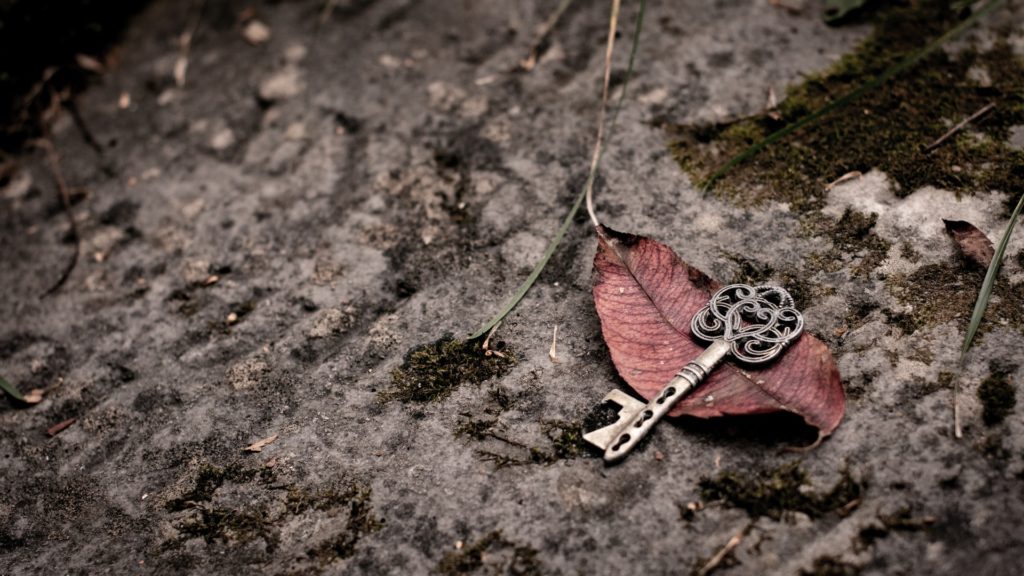O, be some other name!
Romeo & Juliet, William Shakespeare
What’s in a name? That which we call a rose
By any other name would smell as sweet;
So Romeo would, were he not Romeo call’d
How important are names really? Was Juliet right that names are just arbitrary labels? Or do names actually hold power?
My opinion on this subject is heavily influenced by the staggering number of stories in which the power of names is undeniable. Spoiler alert: names hold more power in the human imagination and in the real world than you might think.
Tales and Legends on the Power of Names
If you’re like most people, this subject automatically reminds you of Rumpelstiltskin. It’s a tale as old as time. A little man ensnares a naïve young girl into a magical contract she later regrets. It’s only when she learns his real name that she breaks the contract and keeps her firstborn child.
But this is only one example of the power of names.
There are dozens of fairy tale heroes who defeat a villain by learning their true name. Tales all over the world use names as a way to escape bad bargains, save the ones they love, or to help a beautiful girl escape an arranged marriage. That’s a popular one.
One specific example I love is the tale of Saint Olaf who gets out of a bad deal by learning a magical troll’s name. Mr. Troll offers to build Olaf’s congregation the most incredible church on earth in exchange for the sun, the moon, or Olaf’s life. Take your pick. The only way out of the contract is if Olaf learns his name, “for one can destroy an evil spirit’s power with his name.”
Over and over again the evidence is clear: bad guys have a special vulnerability attached to their true name.
The Power of Anonymity
This idea pops up in folklore all over the world. But I think the bigger question is whether the power of names is inherent or if we’re the ones who give names their power. There are certainly stories where the inherent danger of someone learning your name is quite logical.

My favorite example comes from Homer’s The Odyssey when the hero Odysseus hides his real name from a man-eating cyclops. During their adventure, Odysseus claims that his name is “nobody,” and he and his men have to outsmart and blind the cyclops to escape his cave. In a moment of hubris, Odysseus shouts his real name to the monster as the crew sails away. This ends up being a really stupid decision that brings the wrath of Poseidon—the cyclops’s father—directly onto Odysseus’s head. Both he and his crew end up stranded at sea for decades. Nice going, O.
If you think about it, most examples of villains being undone by their true name can also be traced back to a prideful mistake. It was pretty dumb of Rumpelstiltskin to dance around a campfire singing out his name for any peasant to hear. And really, all these villains chose to make their true name part of the bargain.
But is the power of names really just self-bestowed? Or do names carry bigger significance?
The Weight of Symbolism
Because names so often represent deeper truths, the power of names also lies in what a name symbolizes.
One of the most widely known examples of this is in the Harry Potter series. J K Rowling’s wizarding community is terrified of Lord Voldemort’s name to the point that they won’t even say it out loud. This aspect of the story was likely inspired by ancient superstitions that uttering the name of the Devil can make him appear. Since He Who Must Not Be Named is gone at last, nobody is keen on jinxing that . . .
It’s pretty easy for Harry Potter, the newcomer to his magical culture, to see this fear of a name as silly. But you also have to remember that these other witches and wizards lived through the villain’s first reign of terror. To them, Voldemort isn’t just a name. It’s a banner of evil, death, darkness, torture, loss, and chaos. It represents everything they almost didn’t escape. Is it any wonder such a name carries trauma in their community?
The symbolism of names is also in J R R Tolkien’s Lord of the Rings. Plenty of characters from Middle-earth have multiple monikers, but the one that fascinates me the most is the hobbit Sméagol who becomes Gollum. Throughout the story, Sméagol and Gollum become two halves of one person, the loyal friend and the monster. One name represents the life he lost while the other represents his depravity and servitude to the One Ring. Both names carry such significance for him that he becomes a completely different person under each one.
Names Can Also Restore What’s Been Lost
It’s no surprise that names are a powerful source of identity. There are countless stories in which characters who can’t remember their past go on long, harrowing journeys to find out who they are and reclaim their true name. While a true name is a vulnerability to some, to others it’s a prized possession.

For Gollum, the moment when he remembers his own name is quite beautiful. So many years have passed and the One Ring’s corruption has taken such a strong hold that Gollum no longer remembers his past life. Just hearing his true name—Sméagol—is enough to help him surface from the darkness and want to recapture the hobbit he once was. Even just clinging to the memory of his own name gives this character the motivation to try to restore what he’s lost.
This is the power of names that I love the most: they represent a life, a person, and a time that can invoke dread or inspire hope. And in some stories, a name alone can be a hero’s salvation.
The Power of Names to Protect
Names certainly have power to defeat evil or represent deeper truths, but what about names that actually strengthen the bearer?
In changeling folklore, babies are at greater risk of being kidnapped by fairies before they are christened. Receiving a Christian name—and a true identity that goes along with that name—actually protects those babies from malevolent forces that wish to tear them away from their mortal life. In these folktales, names actually have a grounding quality to link children to their home.
Another fantastic example of a name becoming a tether is in Hayao Miyazaki’s Spirited Away. This movie is basically the Japanese version of Alice in Wonderland, and like all Miyazaki films, the animation is stunning. In Spirited Away, the main heroine, Chihiro, is stranded in a strange land of spirits and has her identity ripped away from her. She becomes Sen, but she’s warned not to forget her real name. It’s by clinging to her identity that she eventually harnesses her own inner power to rescue her family and return home.

I find this to be one of the loveliest themes yet: that names can rescue us by reminding us who we really are and where we came from. In a similar way to Sméagol remembering his past through a name, Chihiro finds her way home by remembering who she truly is. And once again a name becomes a window to the truth.
Truth, Safety, and Identity
If nothing else, the sheer number of stories in which names matter tells you quite a bit about how much the human race values our names.
I do like the sentiment from the famous line in Romeo & Juliet. It’s true that a name isn’t everything you are. The beauty and smell of a rose exist beyond its name, and yet Juliet’s theory that Romeo can simply put off his name to be with her ends up not being true. His Montague family is a key part of who he is, and one’s true identity can’t be shed on a whim.
Still, it’s fascinating to see just how much storytellers care about names. And believe it or not, the power of names is something that exists in the real world too . . . not just in stories. ❧




